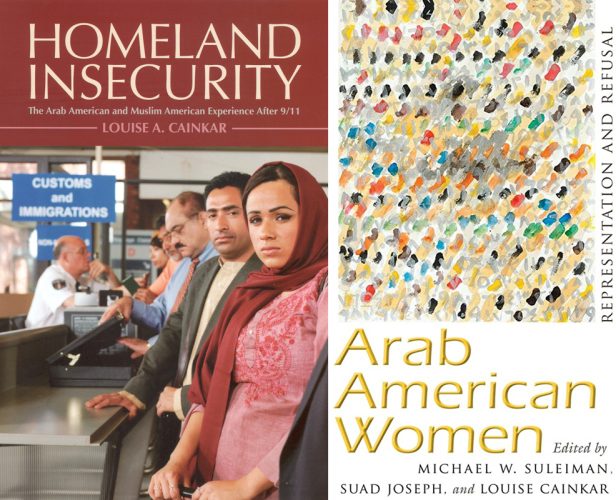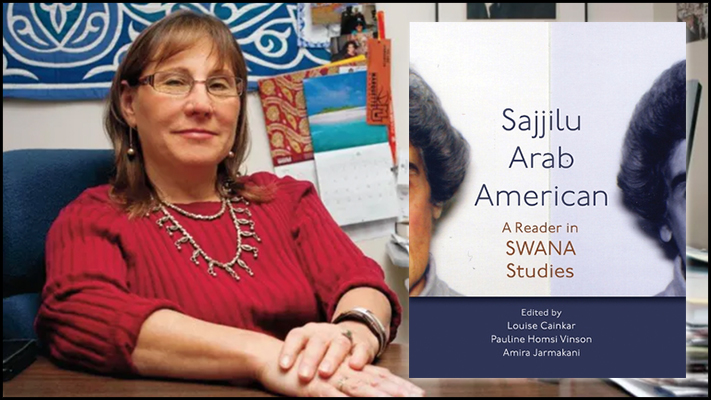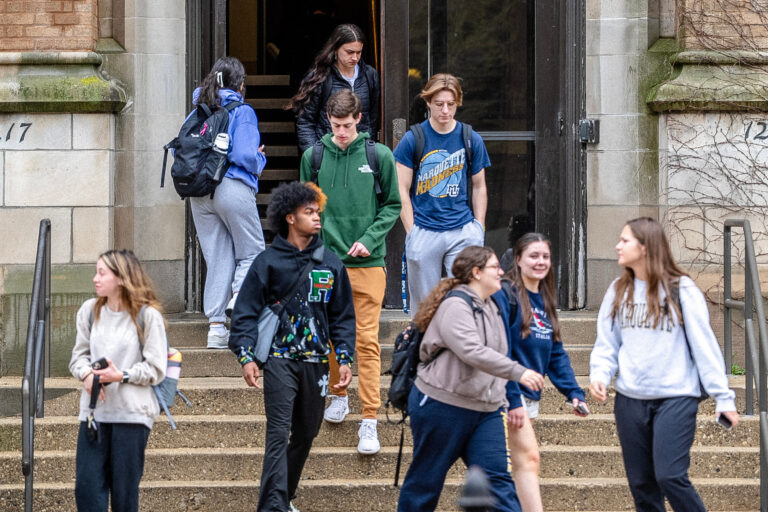Co-Edited by Dr. Louise Cainkar, professor of social and cultural studies
Both a summative assessment of the field and an exploration of new directions, this multidisciplinary reader addresses issues central to the fields of Arab American, U.S. Muslim, and Southwest Asian and North African (SWANA) American studies. Taking a broad conception of the Americas, this collection simultaneously registers and critically reflects upon major themes in the field, including diaspora, migration, empire, race and racialization, securitization, and global South solidarity. The collection will be essential reading for scholars in Arab/SWANA American studies, Asian American studies, and race, ethnicity, and Indigenous studies, now and well into the future.
Learn more or purchase this book on Syracuse University Press
Cainkar answered some questions about her new book, including where the idea came from, what the writing process meant to her and what she hopes the book can accomplish.
The first comprehensive and multidisciplinary reader in Arab American studies, this collection includes some of the most foundational scholarship as well as emerging lines of inquiry for the growing fields of Critical Muslim Studies and Critical SWANA Studies throughout the Americas. SWANA is a relatively new acronym replacing the colonial notion of the “middle east” and north Africa.
Since our field is highly interdisciplinary, I brought on a scholar in the arts and humanities and a scholar in cultural studies to augment my expertise in the social sciences and in history. We co-wrote, using Google Docs, more than 150 pages of introductory and summative text and met weekly for more than two years jointly talking through and editing our writing. As we each brought different lenses to the material and its meaning, it was a truly non-competitive and mutually supportive feminist process! Yes, it took loads of time, but the time invested was well worth it.

Is this your first book? What is your publishing history?
No. In addition to more than 40 peer-reviewed scholarly articles and book chapters, which have been downloaded more than 30,000 times across 140 countries, I have published a number of special editions of journals and two prior award-winning books. “Homeland Insecurity: The Arab American and Muslim American Experience After 9/11” (Russell Sage Foundation Press, 2009) won the 2009 Institute for Social Policy and Understanding Young Scholar Award and Arab American National Museum award (Adult Non-Fiction). My 2021 co-edited book, “Arab American Women: Representation and Refusal” (Syracuse University Press) won the 2022 CHOICE National Book Award and Arab American National Museum award (Adult Non-Fiction).
The field of Arab, Muslim and SWANA studies has grown immensely, particularly since the 9/11 attacks, when these populations collectively experienced severe repercussions even though they had nothing to do with them. Long marginalized in race and ethnic studies, I felt it was time to make the statement that not only does this field within race studies exist, but also that it has a strong and vibrant multi-disciplinary body of literature that will be useful to scholars and teachers across race, ethnic and indigenous studies.
To solidify the field of Arab, Muslim and SWANA studies as a vibrant and integral field of race studies, to provide professors with a range of highly useful classroom materials, and to stimulate further research.
I teach Arab and Muslim American studies at Marquette and direct our minor in that field of study. I also direct Marquette’s interdisciplinary peace studies major, and the book addresses a range of nonviolent movements seeking justice in the U.S. and abroad. I am also research active. Currently I am studying recent significant changes in refugee resettlement and am engaged in a university/community partnership with the Milwaukee Muslim Women’s Coalition providing trauma-informed restorative programming to new Afghan women refugees in Milwaukee.
If you have recently published a book, or if you have one coming out, we would like to feature your publication in an upcoming Marquette Bookshelf feature. More information on the submission process is available online.
Book Details
- Publisher: Syracuse University Press (Sept. 15, 2022)
- Language: English
- Paperback: 552 pages
- ISBN-10: 0815637217
- ISBN-13: 978-0815637219



